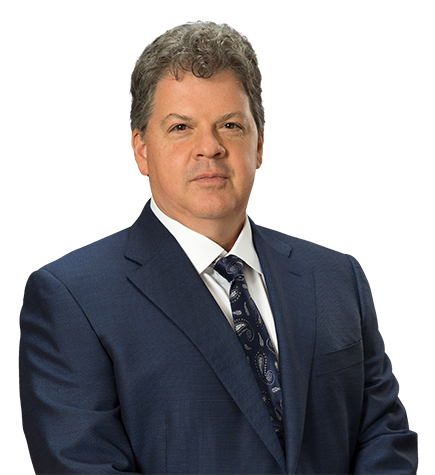Alan Heinrich’s practice focuses on intellectual property litigation. He has extensive experience litigating patents in the fields of biotechnology, medical devices and high tech. He has been a member of trial teams that have obtained multi-hundred million-dollar judgments on behalf of patent owners and have also successfully defended against multi-hundred million-dollar damages claims on behalf of accused infringers.
Alan previously served on Irell & Manella LLP’s Executive Committee and as chair of the firm's Hiring Committee. He is an adjunct faculty member at the University of California, Los Angeles, where he teaches Patent Intensive, an advanced patent law seminar, and has also taught Patent Law and Federal Courts at Loyola Law School.
Experience
- VLSI Technology LLC v. Intel Corporation (W.D. Tex). Co-lead trial counsel for VLSI Technology LLC in a patent infringement lawsuit against Intel Corporation. The lawsuit involves two patents that improve the speed and performance of microprocessors. In March 2021, a jury found that Intel infringed the patents in suit, rejected Intel’s invalidity defense, and awarded $2.18 billion in reasonable royalty damages. In April 2022, a judge issued a $2.3 billion final judgment in the case. Alan was recognized as an Am Law "Litigator of the Week" for his role in the case.
- VLSI Technology LLC v. Intel Corporation (W.D. Tex). Co-lead trial counsel for VLSI Technology LLC in separate patent infringement lawsuit against Intel Corporation. The lawsuit involves a patent on improved memory access requests that increase the performance of microprocessors. In November 2022, an Austin, Texas jury found that Intel infringed the patent in suit, rejected Intel’s invalidity defense, and awarded over $948 million in reasonable royalty damages, the exact sum requested by VLSI.
- Alector v. Asa Abeliovich, M.D., Ph.D. (JAMS arbitration). Co-lead trial counsel for Dr. Asa Abeliovich, M.D., Ph.D. in a JAMS arbitration proceeding brought by Alector Inc. Dr. Abeliovich is the founder and CEO of Prevail Therapeutics, a clinical stage biotechnology company developing gene therapies for neurodegenerative diseases, including Parkinson’s and Frontotemporal Dementia. He is also the co-founder and a former consultant for Alector. In June 2019, Alector filed an arbitration against Dr. Abeliovich, claiming that he misappropriated Alector’s trade secrets in developing Prevail’s gene therapies. Alector sought a substantial monetary award as well as sweeping ownership rights to Prevail’s intellection property estate. After a two-week arbitration trial in July 2020, the arbitrator rejected all of Alector’s principal claims against Dr. Abeliovich, including allegations of misappropriation of trade secrets. Specifically, the arbitrator rejected Alector’s claims that Dr. Abeliovich used Alector trade secrets or confidential information in connection with his work on behalf of Prevail, as well as Alector’s claim that it had any rights to Prevail’s intellectual property.
- Koninklijke Philips N.V. et al. v. ZOLL Medical Corp. (D. Mass.). Represented ZOLL Medical Corp. in a patent infringement lawsuit brought by its competitor Philips relating to external defibrillator technology. Irell took over the case from other counsel in 2014 after a loss at the liability phase. Philips initially sought over $900 million in damages. After Irell succeeded in knocking out some claims on appeal of the liability judgment, Philips reduced its damages claim to $217 million. In August 2017, a jury returned a verdict in which it rejected Philips’s claim for lost profits damages, found that ZOLL did not willfully infringe and awarded Philips a net of $7.1 million in damages, less than four percent of Philips’s claimed damages.
- Kite Pharma v. Sloan Kettering Institute for Cancer Research (PTAB). Represented Sloan Kettering and Juno Therapeutics in an inter partes review (IPR) proceeding before the Patent Trial and Appeal Board (PTAB). Juno’s competitor Kite sought to invalidate all claims of U.S. Patent No. 7,446,190. The PTAB upheld the validity of all claims of the patent in a final written decision, which the U.S. Court of Appeals for the Federal Circuit summarily affirmed in June 2018.
- Alnylam Pharmaceuticals, et al. v. Whitehead Institute for Biomedical Research, et al (D. Mass.). Represented Alnylam and the Max Planck Institute in a complex patent dispute concerning rights to fundamental technology covered in two families of patent applications in the field of RNA interference (gene silencing). The case was successfully resolved on favorable terms through a creative settlement that used co-ownership rights and other cooperative mechanisms to overcome U.S. Patent and Trademark Office (USPTO) rejections in both patent application families, leading to a robust estate of issued patents.
News
Honors & Awards
- Selected to the inaugural Lawdragon 500 Leading Litigators in America (2023)
- Selected to the Southern California Super Lawyers list in the area of intellectual property litigation (2013-2022, 2024-2025)
- Selected to the Southern California Rising Stars list in the area of intellectual property litigation (2006-2011)
Publications
- “The Myriad Reasons to Hit ‘Reset’ on Patent-Eligibility Jurisprudence,” 47 Loyola of Los Angeles Law Review 117 (2013)
Practice Areas
Education
Loyola Law School (J.D., 2000), summa cum laude; Valedictorian
State University of New York at Buffalo (Ph.D., 1996)
Washington and Lee University (B.A., 1990), magna cum laude; Phi Beta Kappa
Admissions
- California, 2001
- U.S. District Court for the Central and Northern Districts of California
- U.S. Court of Appeals for the Ninth and Federal Circuits
Clerkships
- Hon. Diarmuid F. O'Scannlain, U.S. Court of Appeals for the Ninth Circuit



